39 10 month old sleep separation anxiety
Separation anxiety disorder - Symptoms and causes - Mayo Clinic Separation anxiety disorder is diagnosed when symptoms are excessive for the developmental age and cause significant distress in daily functioning. Symptoms may include: Recurrent and excessive distress about anticipating or being away from home or loved ones Toddler Separation Anxiety at Bedtime: How to Handle It Understand separation anxiety 2. Analyze how it's affecting sleep 3. Stick with the bedtime routine 4. Make the sleep environment positive 5. Never sneak away 6. Say good night, or goodbye 7. Keep calm 8. Comfort your child without developing bad habits 9. Acknowledge your child's anxiety 10. Give your child independence in bed 11.
Separation anxiety in babies and toddlers | BabyCenter Separation anxiety may begin as early as 6 months old and last until your child is 3 years old. It most frequently develops between 8 and 12 months and peaks between 12 and 24 months. That said, when and how your child experiences separation anxiety is very unique and depends on their natural temperament and interactions with you.
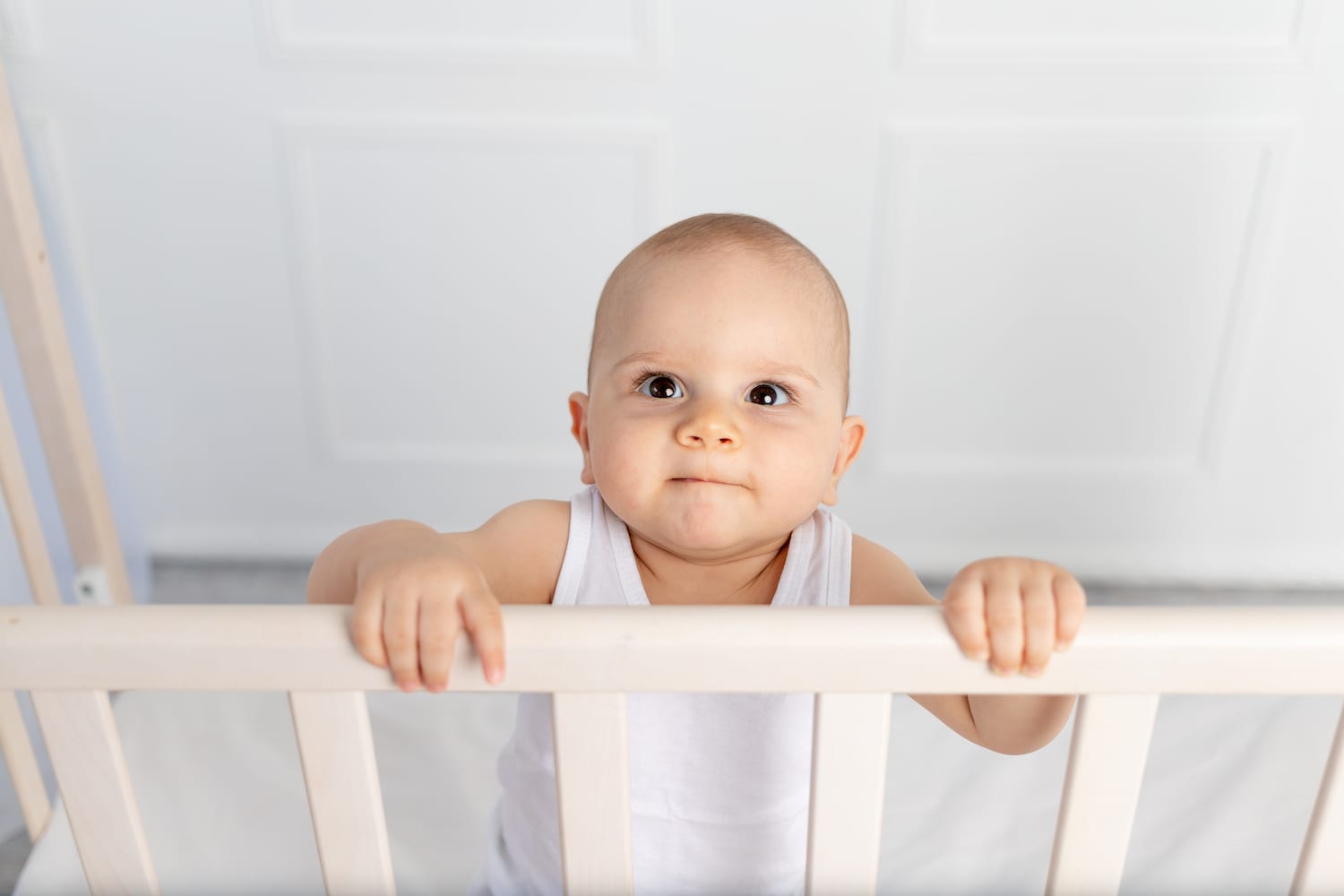
10 month old sleep separation anxiety
Separation Anxiety and Separation Anxiety Disorder A child with separation anxiety disorder may have an unreasonable fear of school, and will do almost anything to stay home. Reluctance to go to sleep. Separation anxiety disorder can make children insomniacs, either because of the fear of being alone or due to nightmares about separation. Physical sickness like a headache or stomach pain. 10- to 12-Month-Old Sleep Schedule: Sample Nap Times & Tips 10-month-old sleep tips. At 10 months, much of the same sleep advice that you've likely already been following still applies. But if a sleep regression or separation anxiety seems to be causing your little one's sleep snafus, you now have some additional tools in your toolbox to help her cope. Keep a bedtime routine. How to Deal with Separation Anxiety in Babies at Night Separation anxiety at night usually starts when your baby is around 6 months old and peaks between 10 and 18 months. It usually gets better by the time your baby turns two. Separation anxiety can lead to disrupted sleep. During this phase of emotional development, your baby may get up several times during the night and cry for you or your partner.
10 month old sleep separation anxiety. How To Deal with Separation Anxiety in Toddlers at Night Separation anxiety in your toddler may look like: Refusing to sleep alone, or only sleeping when they know you are nearby Waking frequently at night and crying for you Crying and tantrums when you leave the room or go to work Clinging to you, especially in new situations or around others Fear of strangers 10-Month Sleep Regression: What You Should Know - Healthline So, how much sleep should your 10-month-old baby be getting? Experts note that babies this age sleep for a total of about 12 to 16 hours per day. This breaks down to roughly 9 to 12 hours... 6 month old separation anxiety - Baby's First Year | Forums | What to ... 6 month old separation anxiety. A. AoiHato. Hi Mamas, my baby developed separation anxiety. Just wanted to know if there's anyway I can help her? ... Your 10- to 12-Month-Old's Sleep Schedule. First Year. Your 8-Month-Old's Sleep Schedule. Toddler. How to Deal with Stranger Anxiety. First Year. The 8-Month Sleep Regression in Babies. In June ... 18-Month Infant Sleep Regression | Sleep Foundation Separation anxiety is a major contributor to sleeping problems in toddlers. It can make them resistant to going to bed, cry out once they are in bed, or fail to get back to sleep if they wake up in the night. Some separation anxiety is normal, but it's best for parents to avoid reinforcing it.
How to Stop Nighttime Separation Anxiety - Calm Clinic Nighttime separation anxiety is most commonly associated with children, but it is an issue that can affect both children and adults. It's characterized by anxiety and fear when left alone and expected to sleep without someone else present. Separation Anxiety & Sleeping Trouble in Young Children Separation Anxiety & Sleeping Trouble in Young Children Beginning in the second half of a child's first year, separation anxiety can cause many nights with disrupted sleep. During this stage (which can last for several months), a child may wake several times and cry anxiously for one or both parents, often expressing a strong preference for one. How to Handle Baby or Toddler's Separation Anxiety & Sleep Issues What Is Separation Anxiety, and Why Does It Happen? Separation anxiety starts in the infant stage — somewhere between 6-10 months, for most babies. You may start to notice that your baby clings to you and cries before you leave her with a babysitter, or at naptime and/or bedtime. Baby with crazy separation anxiety : r/beyondthebump - Reddit Baby with crazy separation anxiety. They say separation anxiety peaks around 10 months, however mine has had insane separation anxiety since she was 6 weeks old. Always wants mom. I can't even sit in the same room with her if we're at grandparents or even with my husband without her immediately starting to fuss.
Separation Anxiety in Babies: When It Starts, Signs & Tips - What to Expect To deal with nighttime separation anxiety, you can go to your infant and reassure her with calming words and your hand on her back, but skip picking her up, as this may coax her to continue, thinking her cries can equal your embrace. A baby at this age may also be experiencing sleep regression, which can be caused by separation anxiety. Separation anxiety in babies: Causes, signs, and how to help Signs of separation anxiety in babies. Potential signs of separation anxiety in a baby or toddler can include: crying when a caregiver leaves the room. clinging to the caregiver, especially in new ... Separation Anxiety: What's Normal and When to Worry Anytime there's a change in your child's routine, there's a possibility they may exhibit symptoms of separation anxiety. Symptoms can include: Excessive distress when separated from home or family (or when separation is anticipated) Constant worry that something bad will happen to a loved one (i.e., illness, disaster) Separation Anxiety in Babies: Causes and Coping Tips | Pampers During the separation anxiety phase, your baby may exhibit the following signs: He may tense up around strangers, or even act shy around people he sees quite regularly, such as friends, relatives, or the babysitter. He may cry or put up a fuss whenever you leave him with someone or whenever you leave the room.
12 Month Sleep Regression: Changes in Your 1 Year Old's Sleep Several factors can contribute to sleep regression in 12-month-olds. Some of the most common causes include: Developmental Milestones: As your baby improves their skills, they may become excited or anxious, making it difficult for them to calm down for sleep. They might want to practice these skills during their waking hours and sometimes even ...
Separation Anxiety in Babies - Healthline Separation anxiety is most common in infants between 8 and 12 months, though it may start earlier and can definitely reappear later. According to the American Academy of Pediatrics (AAP), most ...
The 10 Month Sleep Regression - Nightlight by Nanit What causes the 10 month sleep regression and tips to get the whole family back to sleep. Getting your baby to have a good night's rest is one major goal of every parent, but things (like the 10 month sleep regression) just seem to get in the way of good sleep at every turn. ... Separation anxiety prevents a child from letting the parent ...
How to Deal with Separation Anxiety in Babies at Night Separation anxiety at night usually starts when your baby is around 6 months old and peaks between 10 and 18 months. It usually gets better by the time your baby turns two. Separation anxiety can lead to disrupted sleep. During this phase of emotional development, your baby may get up several times during the night and cry for you or your partner.
10- to 12-Month-Old Sleep Schedule: Sample Nap Times & Tips 10-month-old sleep tips. At 10 months, much of the same sleep advice that you've likely already been following still applies. But if a sleep regression or separation anxiety seems to be causing your little one's sleep snafus, you now have some additional tools in your toolbox to help her cope. Keep a bedtime routine.
Separation Anxiety and Separation Anxiety Disorder A child with separation anxiety disorder may have an unreasonable fear of school, and will do almost anything to stay home. Reluctance to go to sleep. Separation anxiety disorder can make children insomniacs, either because of the fear of being alone or due to nightmares about separation. Physical sickness like a headache or stomach pain.



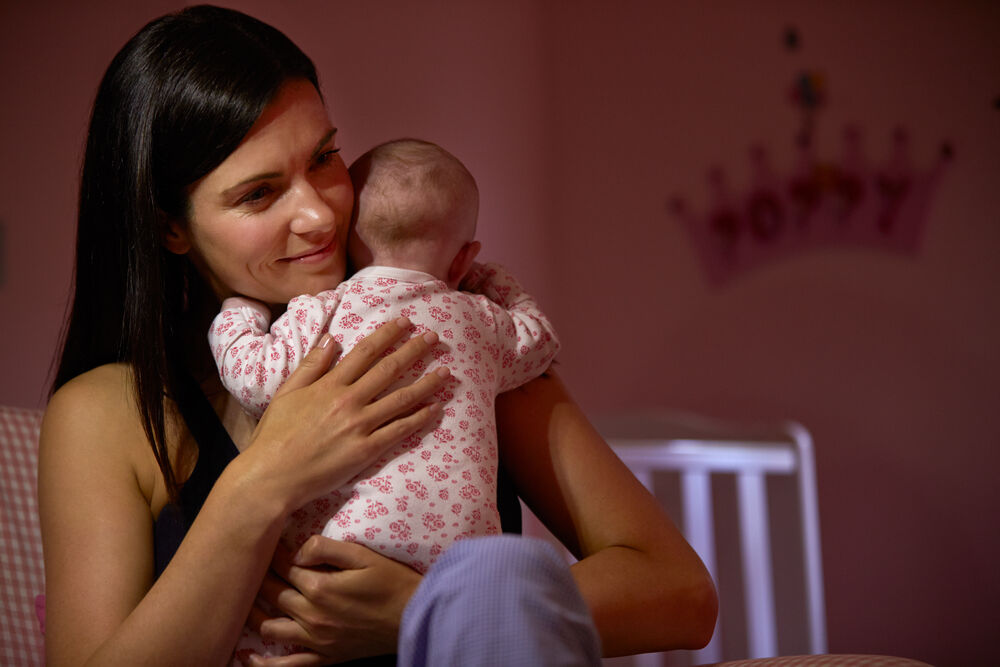

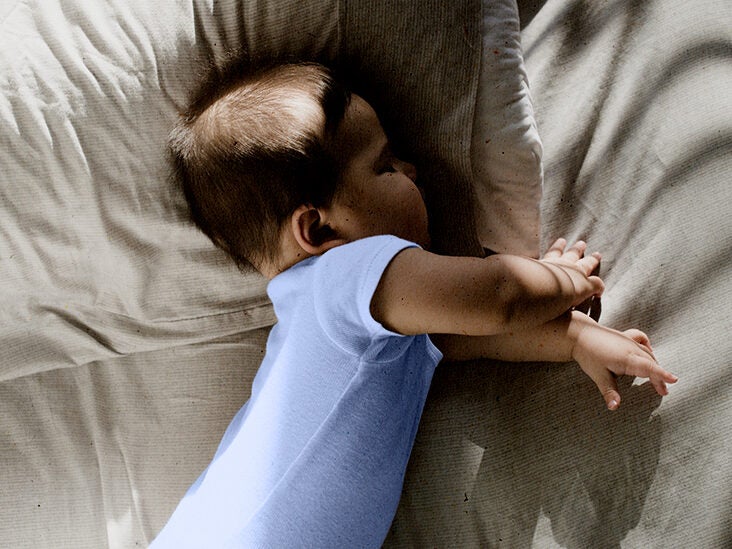




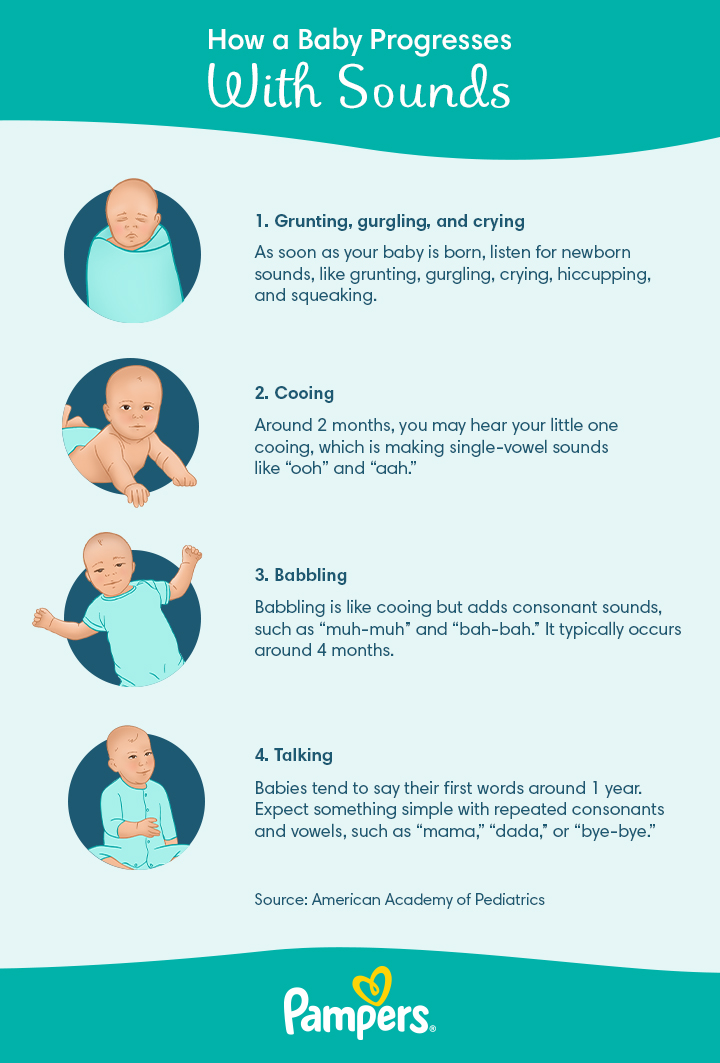
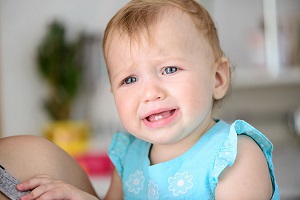
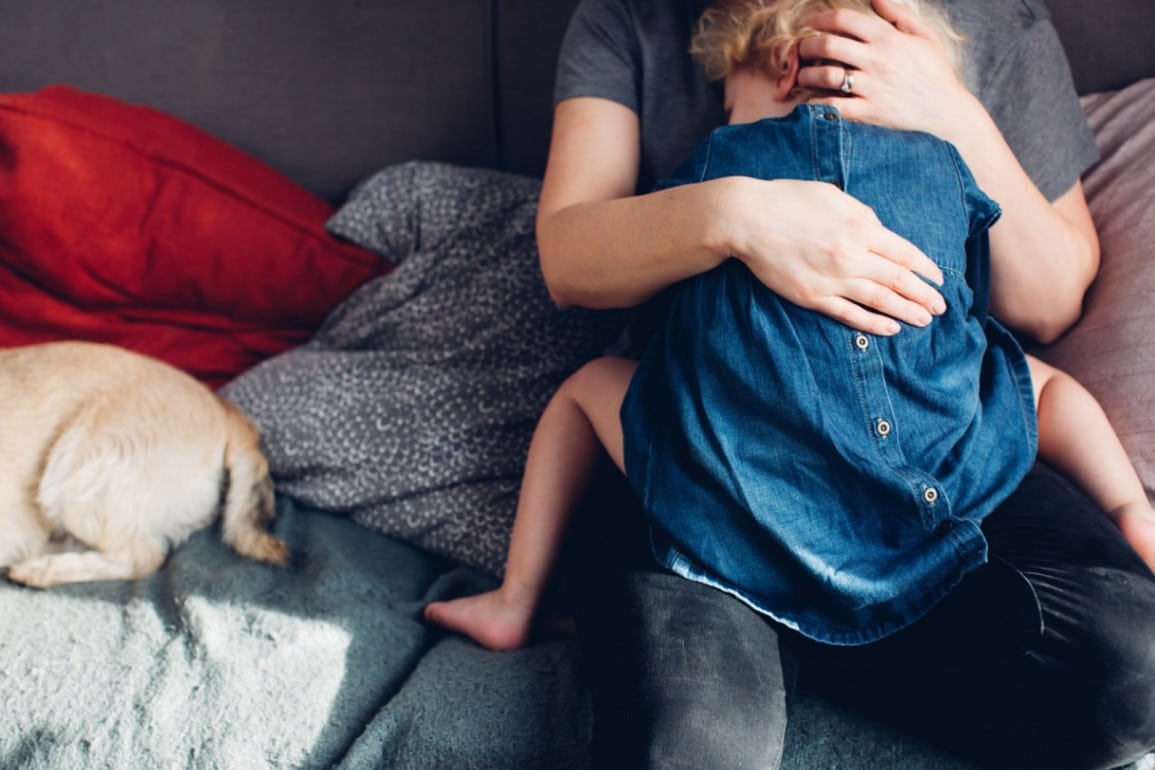
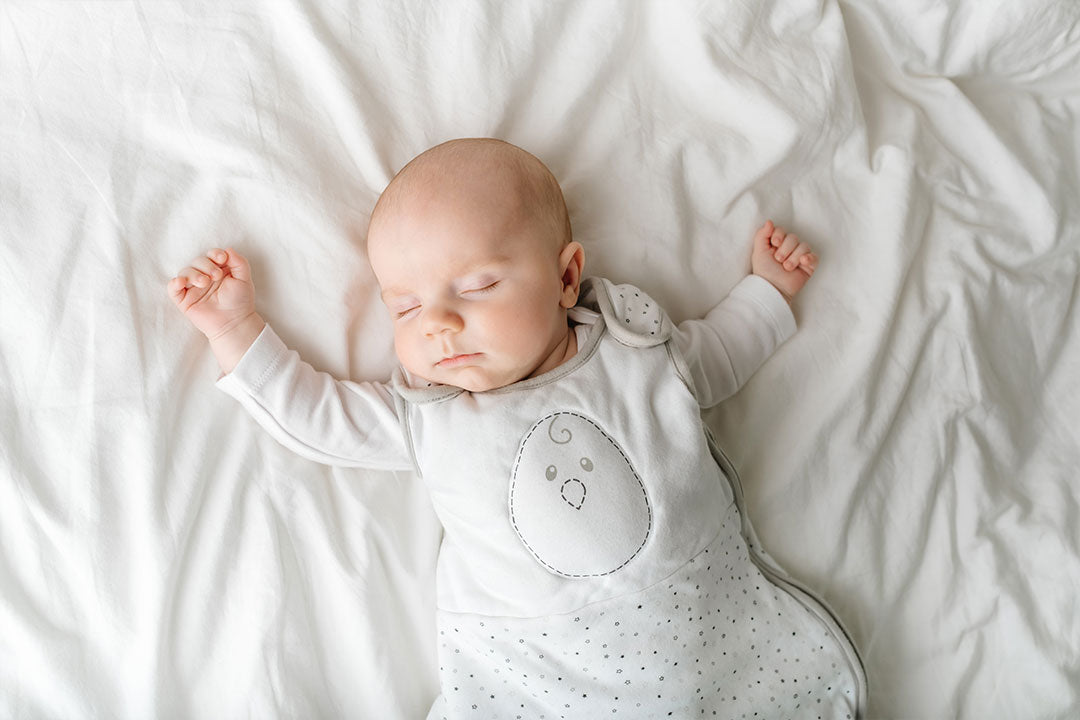
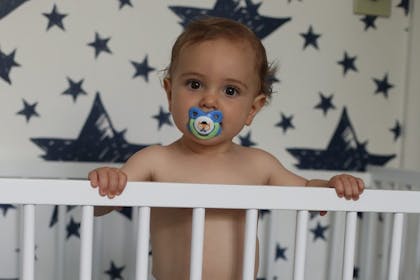
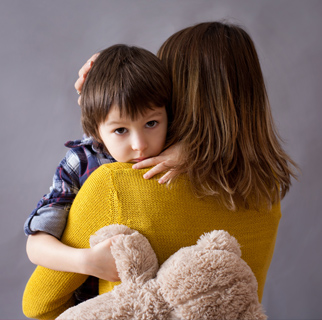
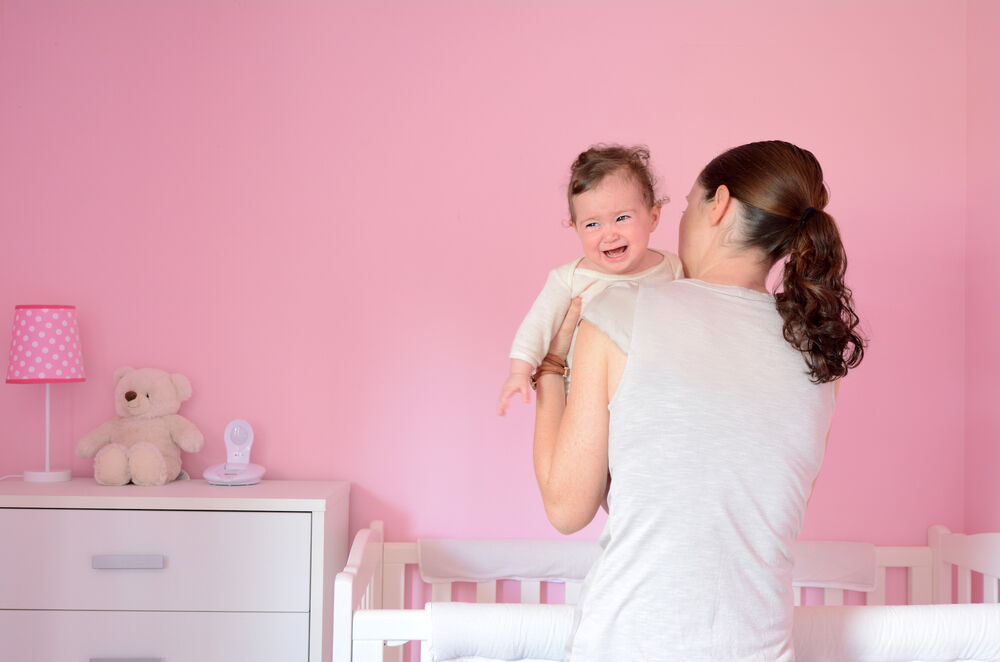
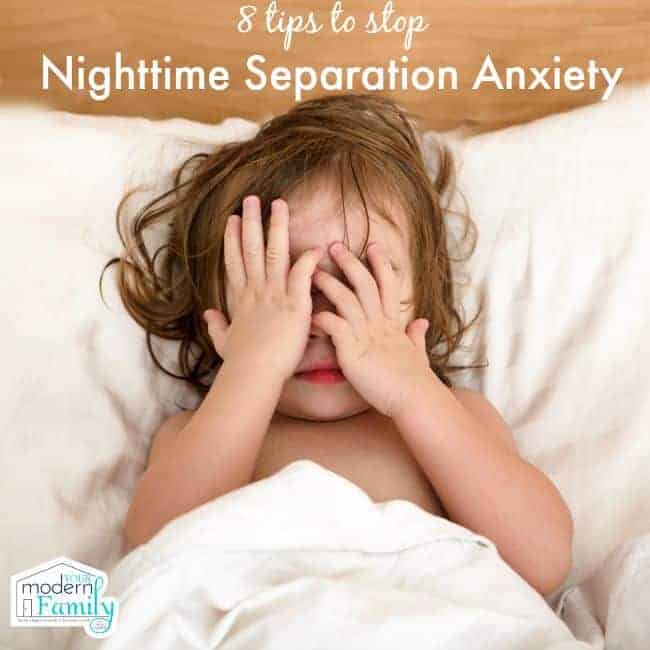
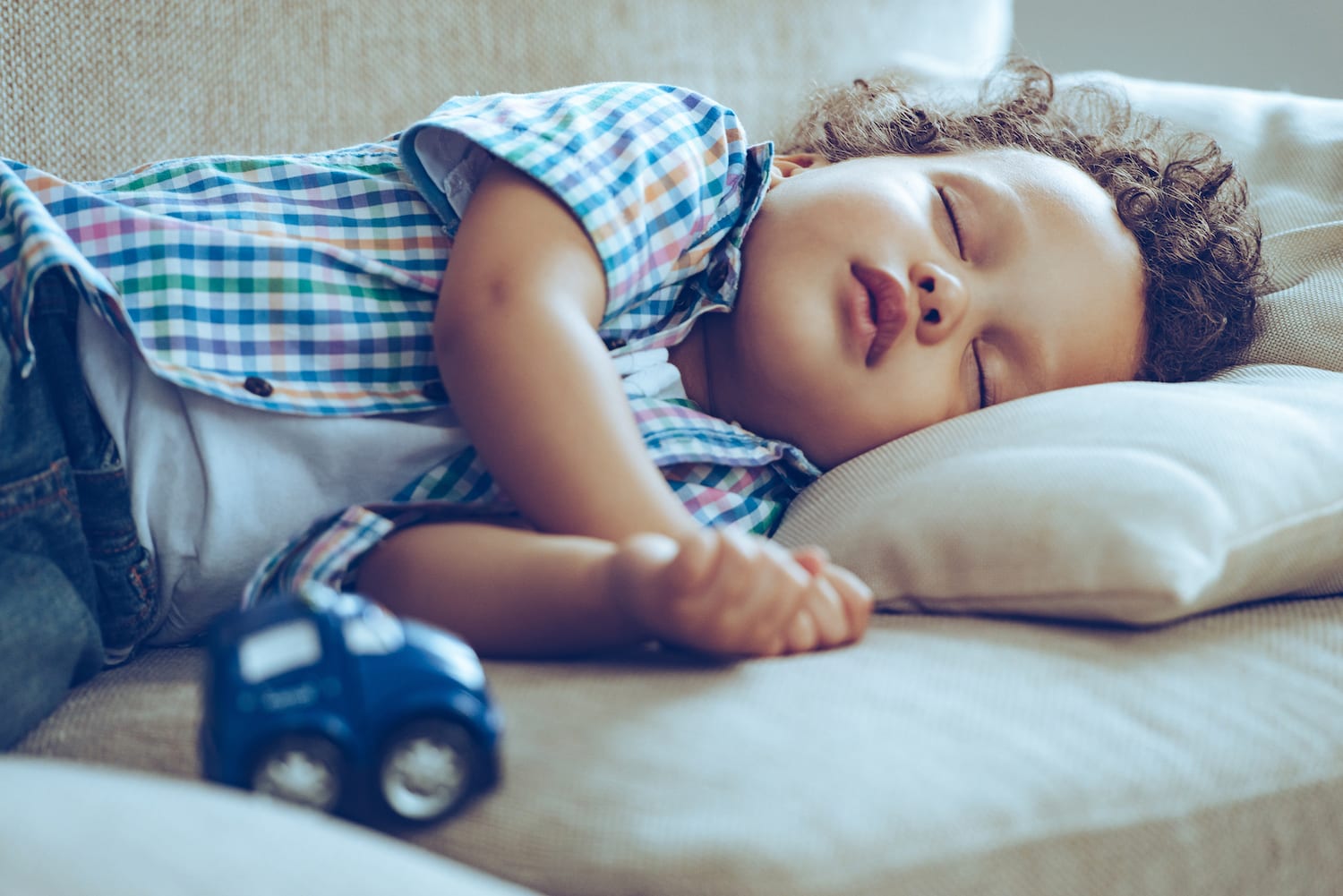
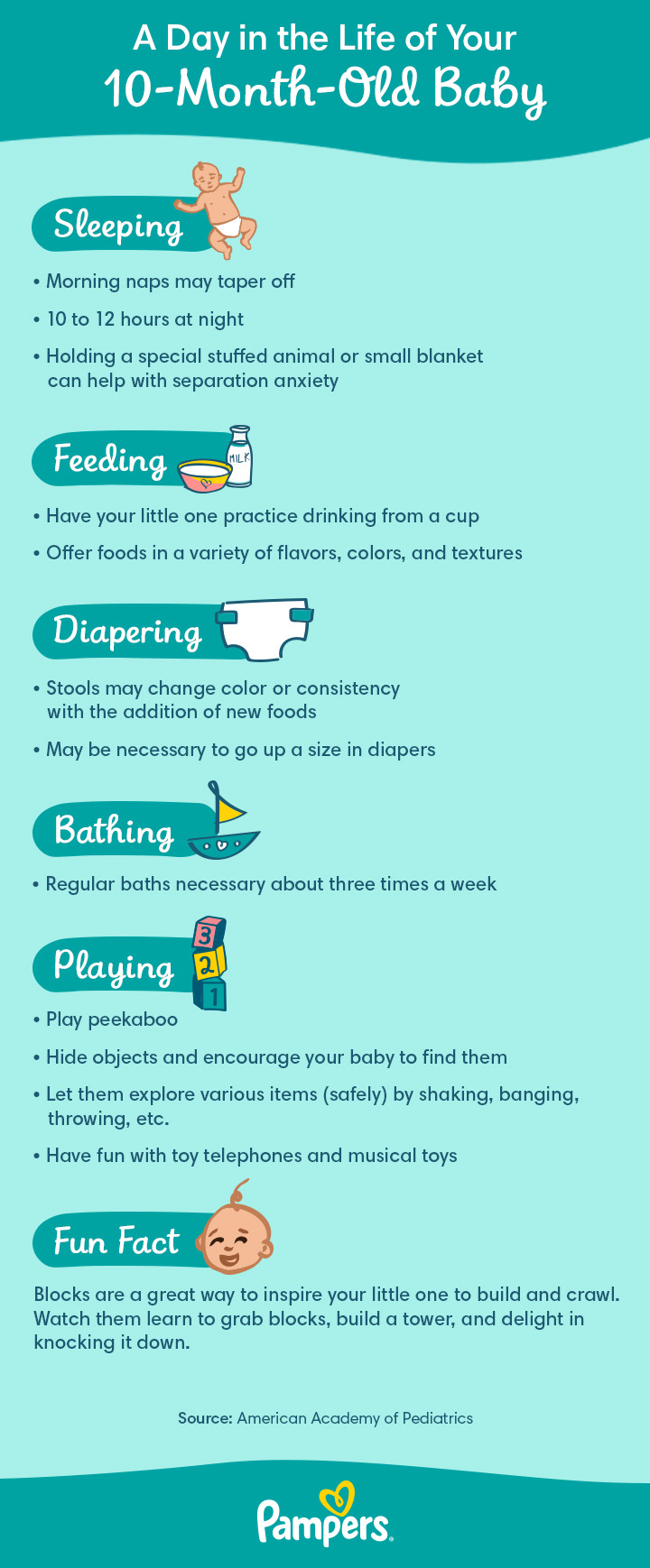



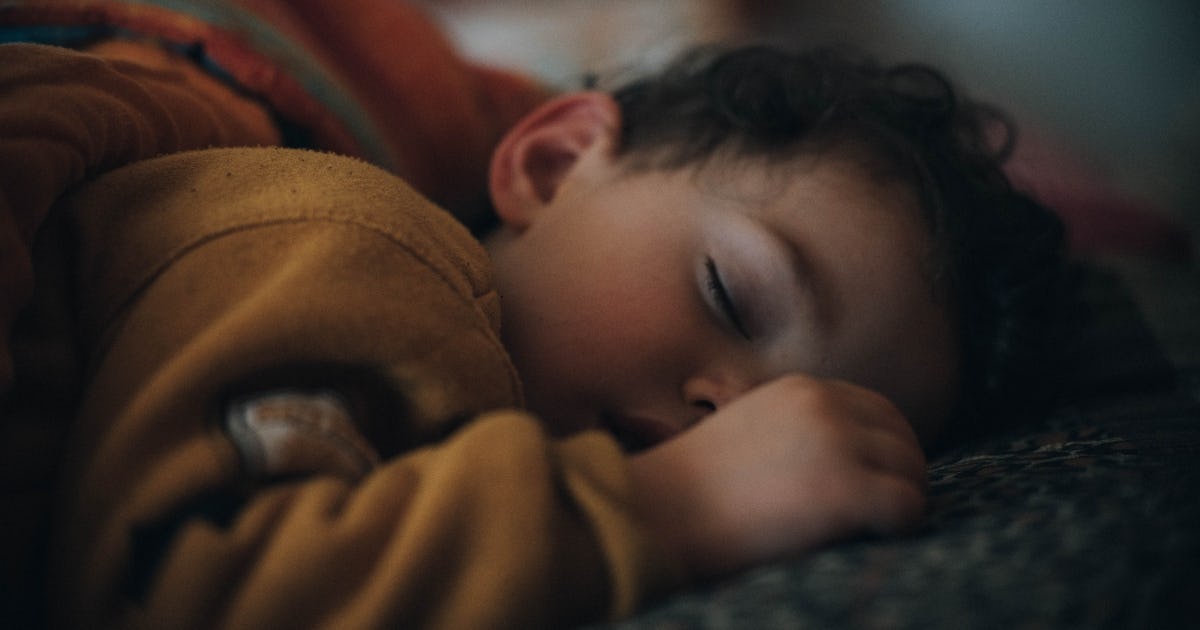

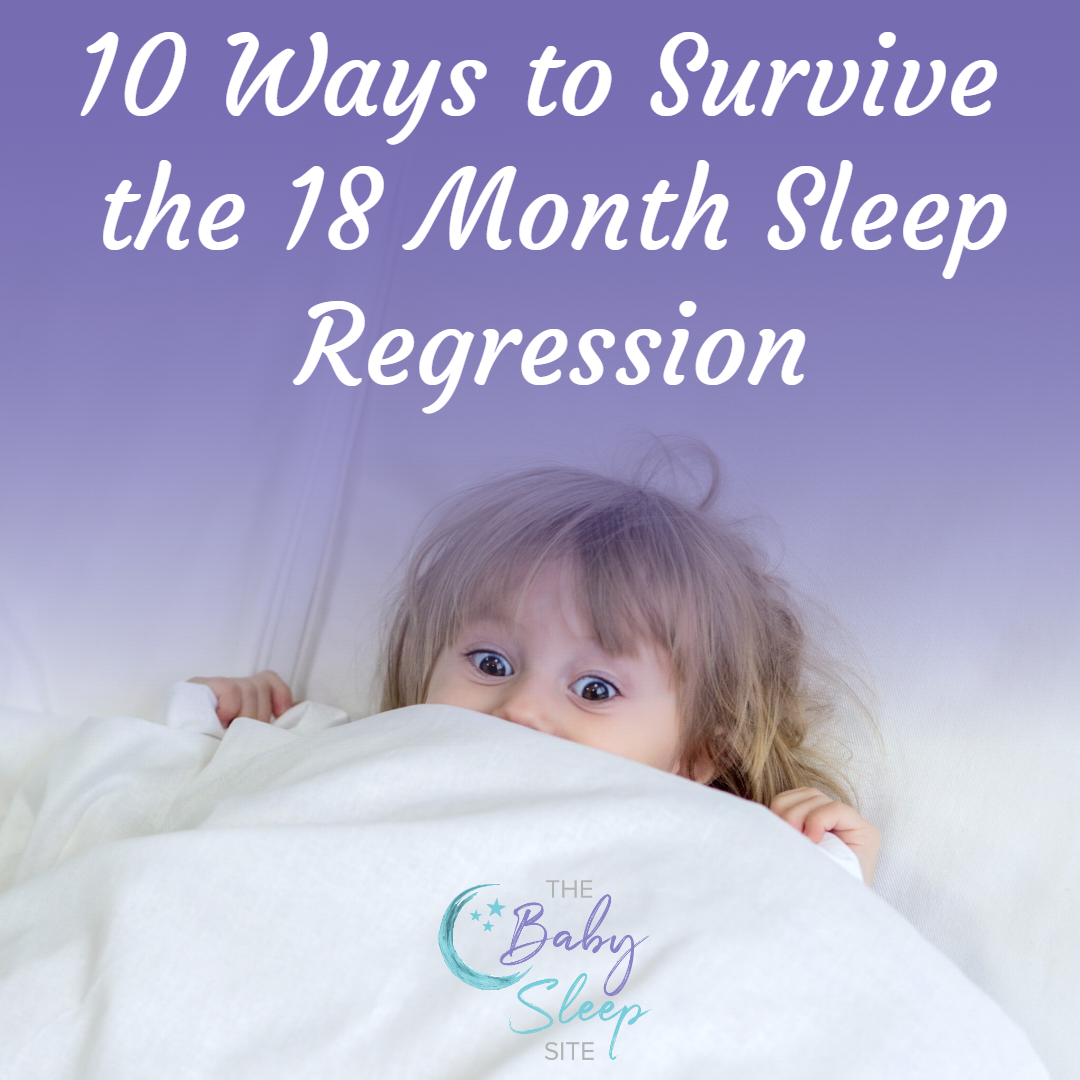
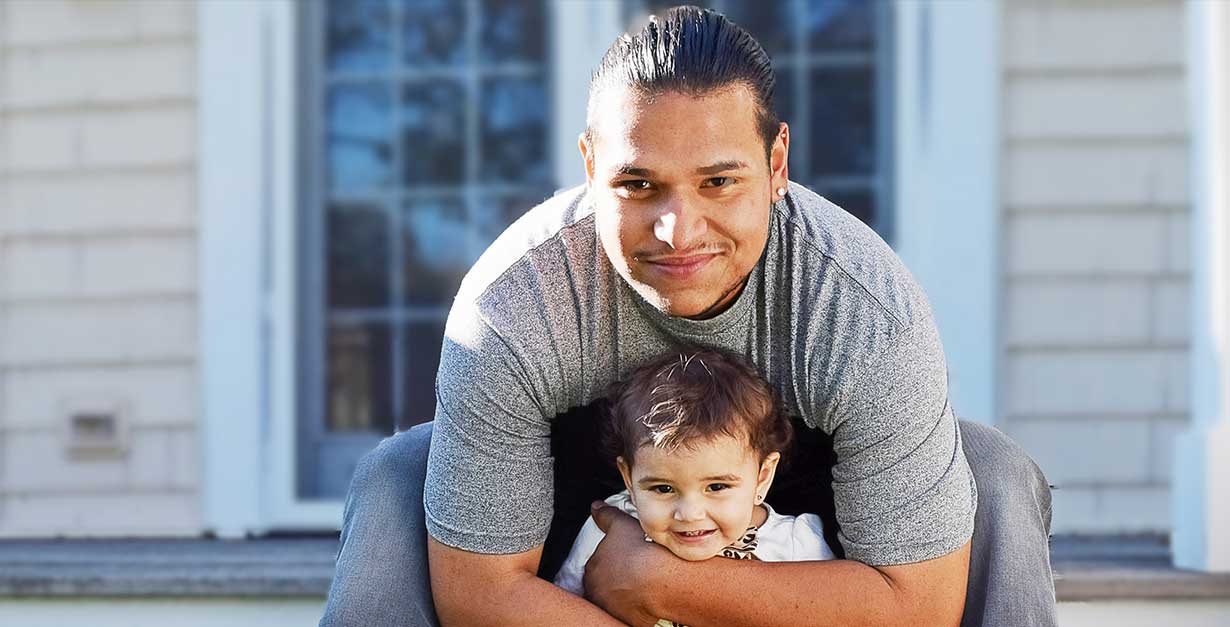
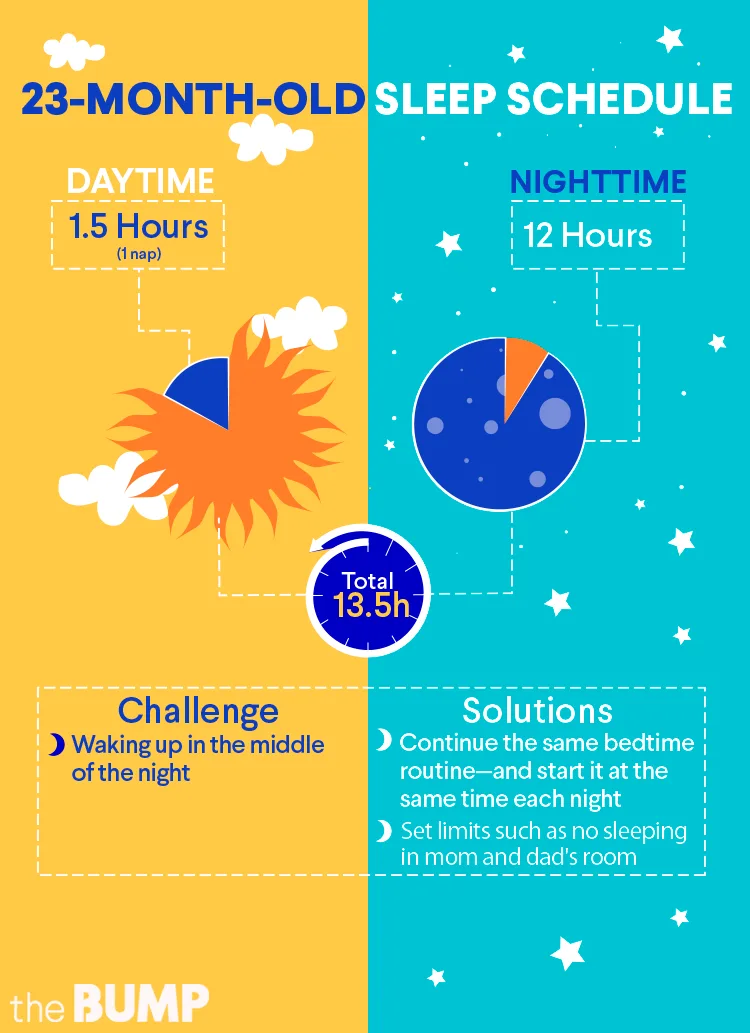
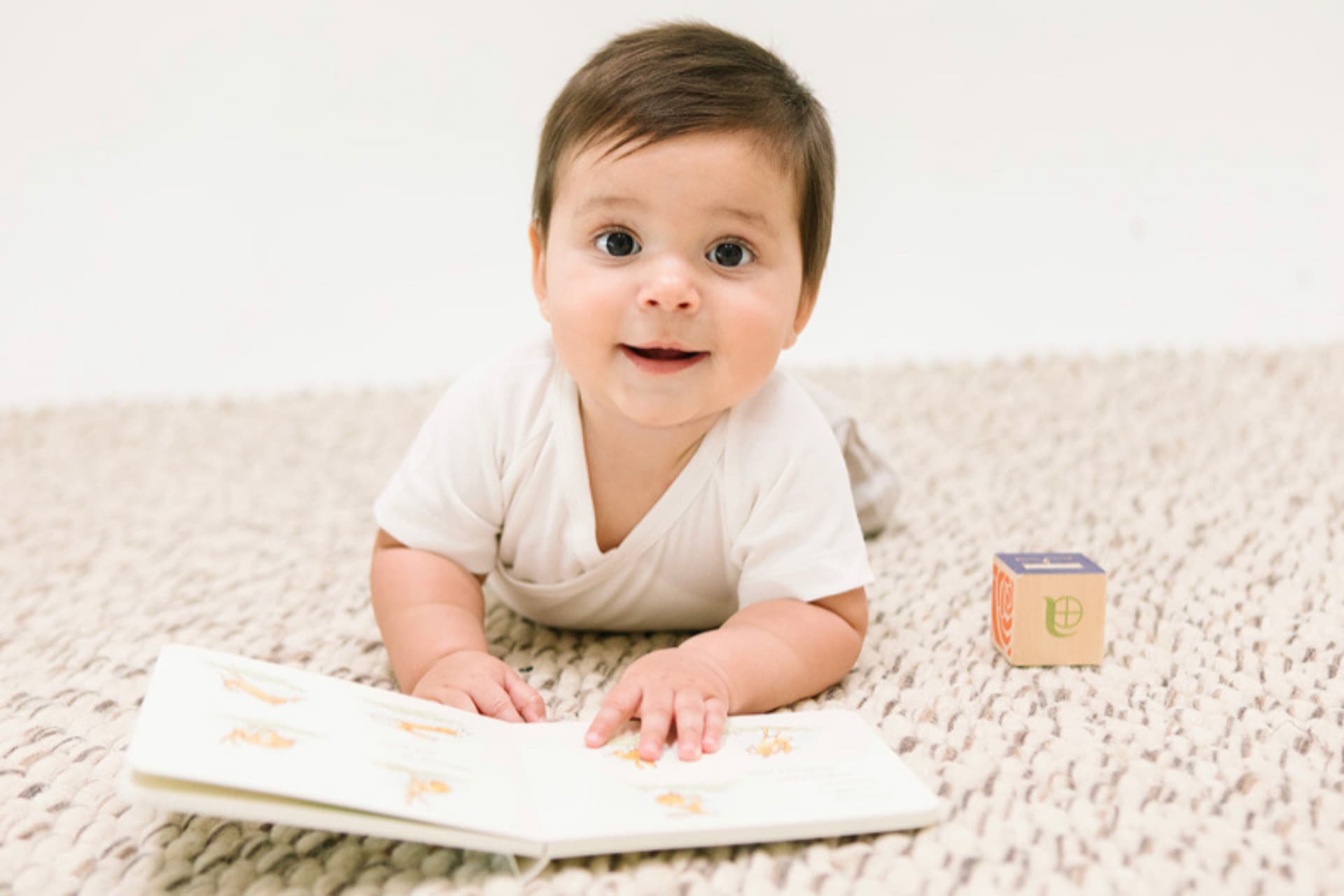
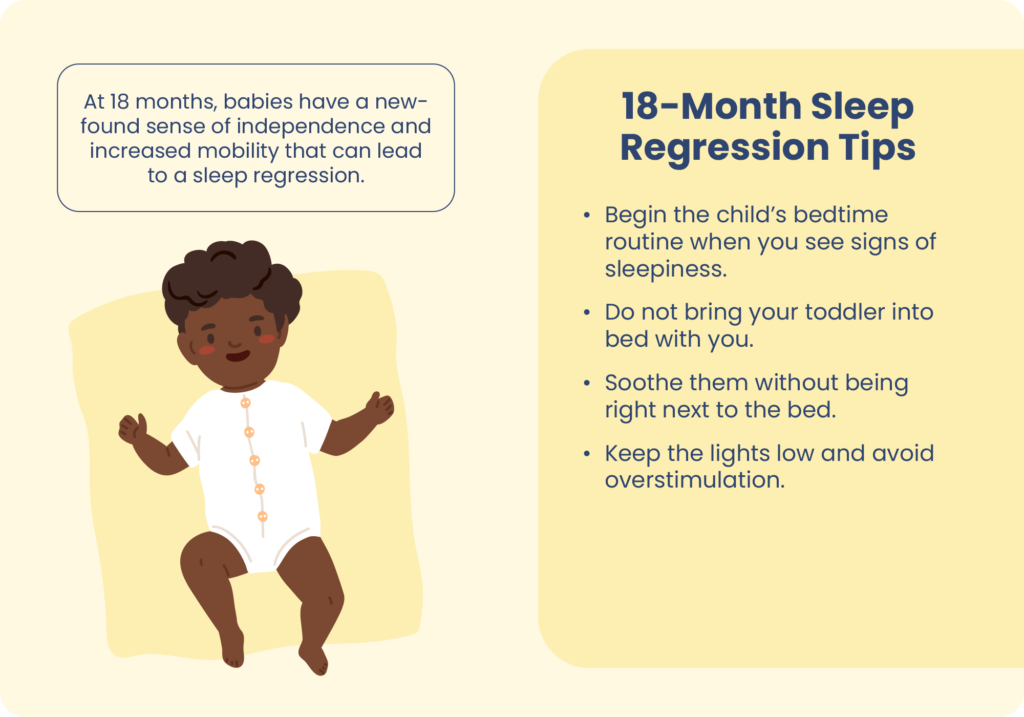
:max_bytes(150000):strip_icc()/GettyImages-135538251-2000-36fa3378fc014ce2b81526dd22aa488f.jpg)
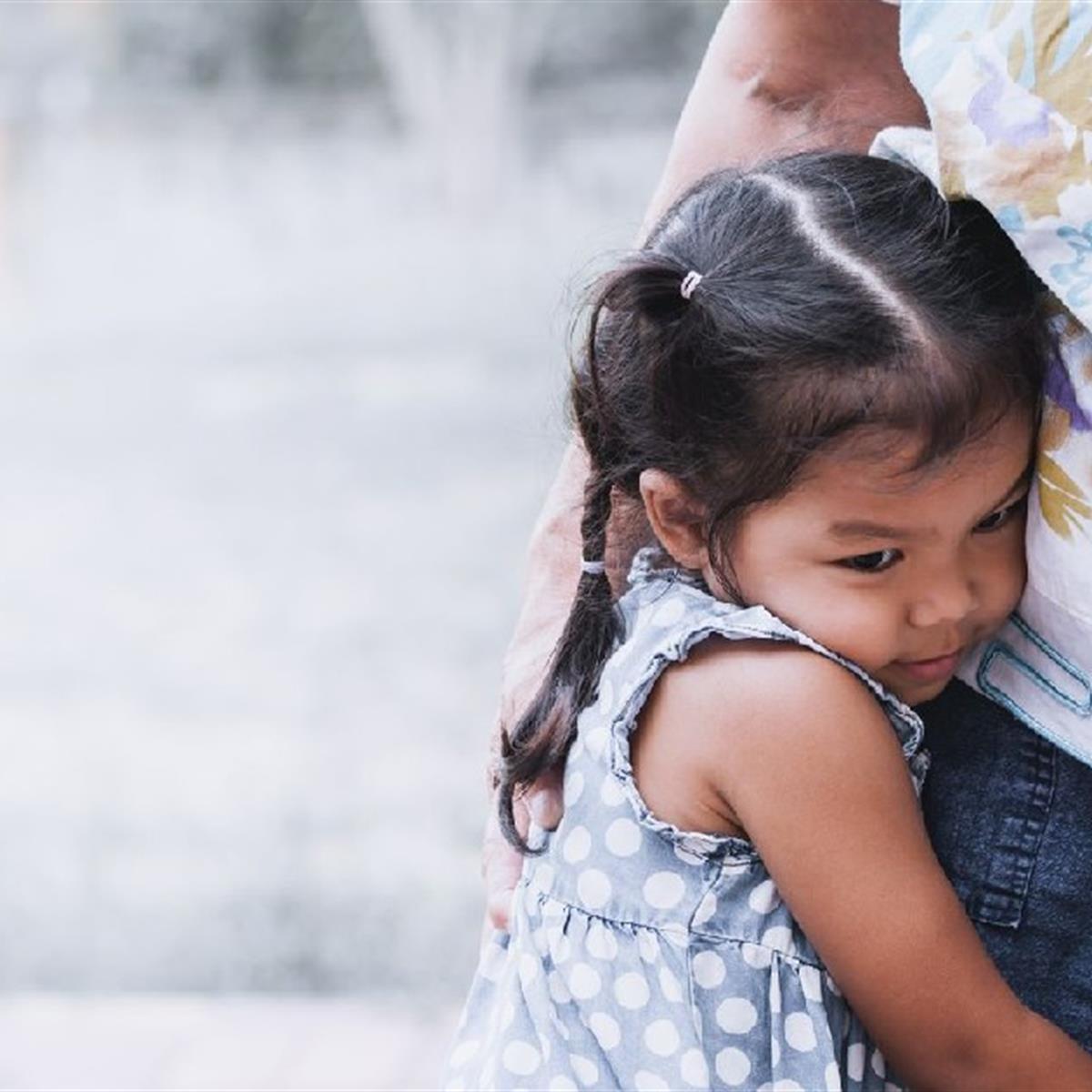
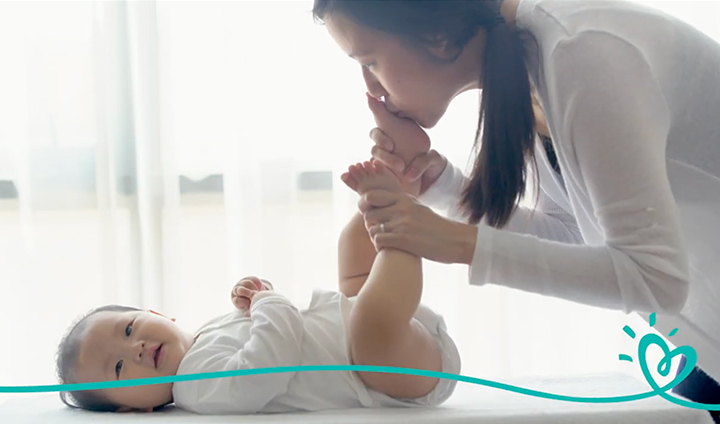




0 Response to "39 10 month old sleep separation anxiety"
Post a Comment